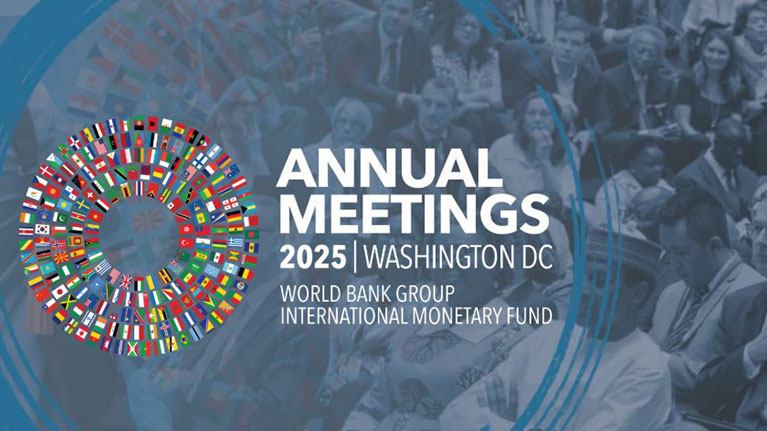Ian Aikman and
Rachel Hagan
The Louvre Museum in Paris is still closed on Monday while police investigate a brazen heist which targeted France’s priceless crown jewels.
Thieves wielding…

Ian Aikman and
Rachel Hagan
The Louvre Museum in Paris is still closed on Monday while police investigate a brazen heist which targeted France’s priceless crown jewels.
Thieves wielding…

SAVE $140: As of Oct. 20, the Amazon Fire TV 4 Series 50-inch is on sale for $259.99 at Amazon. That’s a 35% discount on the list price.
…

On Sunday, SpaceX launched 56 additional Starlink satellites on separate Falcon 9 rockets, surpassing 10,000 total satellites launched into low Earth orbit to date. The milestone was reached on board the 132nd Falcon 9 launch of 2025, tying the…

A common kitchen spice may yield a new class of cannabidiol (CBD)-like medicines with powerful seizure-reducing effects, according to a new study. Caraway seeds, also called meridian fennel, could produce safer, more affordable, and more…

The EU’s regulatory framework for data centres is quickly evolving, combining support and funding programmes with measures that pursue energy transition and climate goals. The European Commission (“EC”) will be putting forward a Data Centre Energy Efficiency Package in Q1 2026 – together with the Strategy Roadmap on Digitalisation and AI – the aim of which is to achieve carbon-neutral data centres by 2030. The implications of this package could be significant for key stakeholders, including investors and operators of data centres.
In the push for EU digital sovereignty and global competitiveness, data centres are a critical infrastructure. The EU’s “State of the Digital Decade 2025” report emphasises the need for further private and public targeted investment in advanced connectivity infrastructure, secure and sovereign cloud and data infrastructures, and AI. While investments in data centres are poised to yield significant returns in growth and productivity, ensuring that the EU remains competitive and resilient in the digital age, such growth comes with substantial energy consumption.1
To tackle these challenges, the EU has adopted several regulatory instruments, and recently announced that in Q1 2026 it will propose a new Data Centre Energy Efficiency Package alongside the Strategic Roadmap on Digitalisation and AI for the Energy Sector, aiming at making data centres carbon-neutral by 2030.
Over the last few years, we have seen rapidly evolving EU rules in relation to the data centers and their energy consumption. In sum:
2026 is set to bring new regulatory developments. In Q1 2026, the EC will roll out a proposal for a Data Centre Energy Efficiency Package alongside the Strategic Roadmap on Digitalisation and AI for the Energy Sector.
A public consultation on the Strategic Roadmap is already ongoing and it is open until 5 November 2025, emphasising its goal to leverage the potential of digital and AI technologies for the energy system, while mitigating associated risks and supporting the competitiveness and decarbonisation of the EU economy. This would include measures to sustainably integrate data centres’ electricity demand into the broader energy system.15
The EC is also expected to publish a Cloud and AI Development Act in Q4 2025 or Q1 2026, aimed at increasing Europe’s cloud and AI infrastructure capacity.16 The goal of the proposal will be to triple EU data centre processing capacity in the next 5-7 years and allow for simplified permitting and other public support measures, if they comply with requirements on energy efficiency, water efficiency, and circularity.
Finally, on 8 October 2025, the EC published its Apply AI Strategy, where it refers to the Strategic Roadmap and Cloud and AI Development Act as including strategies to improve energy efficiency in data centres.17
To conclude, in the context of the ongoing simplification drive of EU regulation under the various Omnibus packages, energy consumption by data centres and AI infrastructure remains high on the EC’s agenda. So much is evident from the core strategies, consultations and action plans that the EC has published over the past months. Even though stakeholders are still grappling with a quickly evolving regulatory framework, new energy efficiency measures are already on the horizon, with more details expected in Q1 2026. At the same time, investors, developers and operators of data infrastructure will also be able to benefit from the various support measures that the EU and the Member States have rolled out and are expected to further deploy in the future.
Elisabetta Zuddas (White & Case, Legal Trainee, Brussels) contributed to the development of this publication.
1 State of the Digital Decade 2025 report of 16 June 2025, available here.
2 Directive (EU) 2023/1791 of 13 September 2023 on energy efficiency and amending Regulation (EU) 2023/955, available here. The EED sets a (revised) EU energy efficiency target, making it binding for EU countries to collectively ensure an additional 11.7% reduction in energy consumption by 2030.
3 Commission Delegated Regulation (EU) 2024/1364 of 14 March 2024 on the first phase of the establishment of a common Union rating scheme for data centres, available here. The European Commission has published a user manual (available here) for accessing the European database, a reporter guide (available here) and frequently asked questions and guidance (available here).
4 Regulation (EU) 2020/852 of 18 June 2020 on the establishment of a framework to facilitate sustainable investment, and amending Regulation (EU) 2019/2088, available here.
5 Commission Delegated Regulation (EU) 2021/2139 of 4 June 2021 supplementing Regulation (EU) 2020/852 of the European Parliament and of the Council by establishing the technical screening criteria for determining the conditions under which an economic activity qualifies as contributing substantially to climate change mitigation or climate change adaptation and for determining whether that economic activity causes no significant harm to any of the other environmental objectives, available here. The Taxonomy is being revised as part of the Omnibus simplification process, see W&C Client Alert ‘EU Omnibus Package: 10 things you should know about the proposed changes to key sustainability legislation‘.
6 European Code of Conduct for Energy Efficiency in Data Centres of 21 March 2025, available here.
7 Regulation (EU) 2024/1689 of 13 June 2024 laying down harmonised rules on artificial intelligence and amending Regulations (EC) No 300/2008, (EU) No 167/2013, (EU) No 168/2013, (EU) 2018/858, (EU) 2018/1139 and (EU) 2019/2144 and Directives 2014/90/EU, (EU) 2016/797 and (EU) 2020/1828 (Artificial Intelligence Act), available, here.
8 See also W&C Client Alert ‘Energy efficiency requirements under the EU AI Act | White & Case LLP‘.
9 Regulation (EU) 2023/1542 of 12 July 2023 concerning batteries and waste batteries, amending Directive 2008/98/EC and Regulation (EU) 2019/1020 and repealing Directive 2006/66/EC, available here.
10 See also W&C Client Alert ‘New EU Batteries Regulation: introducing enhanced sustainability, recycling and safety requirements | White & Case LLP‘.
11 Commission Regulation (EU) 2019/424 of 15 March 2019 laying down ecodesign requirements for servers and data storage products pursuant to Directive 2009/125/EC and amending Commission Regulation (EU) No 617/2013, available here.
12 Development of the EU green public procurement (GPP) criteria for data centres, server rooms and cloud services report of 8 June 2020, available here.
13 The European High Performance Computing Joint Undertaking (EuroHPC JU), available here.
14 Assessment of the energy performance and sustainability of data centres in EU report of July 2025, available here.
15 Strategic Roadmap for digitalisation and AI in the energy sector – consultations opened, available here.
16 AI Continent – Initiative on new cloud and AI development act, available here.
17 Apply AI Strategy, available here. A public consultation and call for evidence closed on 4 June 2025, feedback available here.
White & Case means the international legal practice comprising White & Case LLP, a New York State registered limited liability partnership, White & Case LLP, a limited liability partnership incorporated under English law and all other affiliated partnerships, companies and entities.
This article is prepared for the general information of interested persons. It is not, and does not attempt to be, comprehensive in nature. Due to the general nature of its content, it should not be regarded as legal advice.
© 2025 White & Case LLP

Even with a good batting surface and a strong wind helping six hitting, a successful chase was always a long shot for New Zealand.
They would be better served looking towards the dropped catch of Brook for a reason for defeat.
Wicketkeeper Tim…

GENEVA (ILO News) – Gilbert F. Houngbo, Director-General of the International Labour Organization (ILO), has urged international financial leaders to place decent work and social justice at the heart of their policy agendas, stressing that robust labour institutions are essential to confronting rising geopolitical tensions and trade disruptions.
In written statements delivered to the World Bank Group / International Monetary Fund (IMF) Annual Meetings in Washington D.C., Houngbo emphasized that decent work policies, including minimum wage systems, collective bargaining and social protection, are essential for sustainable and inclusive development.
The ILO Director-General noted that there have been meaningful gains: inequality between countries has declined since the early 2000s and over half the world’s population now has some form of social protection.
Yet he also warned that persistent structural challenges threaten these gains. “As uncertainty in the global economy persists with shifting geopolitical tensions and trade disruptions, the importance of building institutions that foster decent work for all could hardly be more critical,” the ILO Director-General stated.
The ILO forecasts global employment growth at only 1.5 per cent in 2025, with the creation of 53 million new jobs, down from 60 million previously projected. Around 84 million workers, mostly in Asia and the Pacific, face elevated risk due to trade uncertainty. For its part, informal employment continues to outpace formal employment, with 58 per cent of the global workforce remaining in informal employment in 2024.
“These trends underscore ongoing challenges in translating economic growth into formal economy and decent employment opportunities,” Houngbo noted.
The ILO Director-General highlighted that even as global output per worker grew by 17.9 per cent from 2014 to 2024, the labour income share declined from 53.0 per cent to 52.4 per cent.
“Had the labour income share remained at its 2014 level, global labour income would have been US$1 trillion higher in 2024, and each worker would have earned an additional US$290 on average that year.”
Houngbo stressed the importance of minimum wage systems and institutions for collective bargaining to address low pay and wage inequality.
On the future of work, Houngbo addressed the disruptive potential of generative AI, as nearly one in four workers could see their role significantly transformed, with women disproportionately affected, according to ILO estimates.
“Whether AI adoption ultimately leads either to job losses or to complementarity depends on how technology is integrated, management decisions, and – fundamentally – the role of social dialogue between employers and workers in shaping implementation,” he said.
In concluding remarks, Houngbo called for coordinated policy action under a renewed social contract.
“The real challenge is not an inherent conflict between economic and social objectives, but rather the need to take coordinated action that transforms this potential dilemma into a dynamic, mutually reinforcing synergy.”
He stressed that a renewed social contract, anchored in democratic governance, inclusive dialogue, and people-centred policies, provides the institutional foundation and political legitimacy required to sustain progress.

Run Away, an upcoming Harlan Coben series starring James Nesbitt, Ruth Jones, Minnie Driver, and Alfred Enoch, will debut on Netflix on Jan. 1, 2026, following the 2025 success of the limited thriller series Missing You. On Monday, Netflix…

The LG C5 was on top form during our recent What Hi-Fi? Awards 2025, picking up the top spot for the Best 40-43-inch TV, Best Mid-range 55-77-inch TV and Best Gaming TV. You can tell how highly we rate it, can’t you?
Now to the deal. Richer…